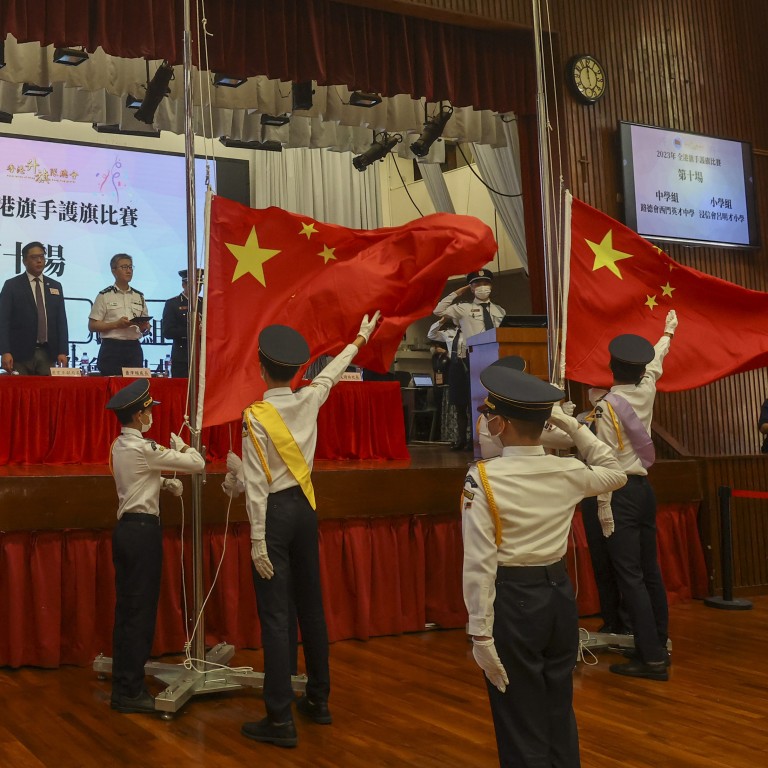
Hong Kong’s National Security Education Day: pupils to be briefed on Xi Jinping’s focus on protecting country, Article 23 law ‘safety barrier’
- Script provided to teachers to read out on National Security Education Day on April 15 underlines Chinese president’s ideology, merits of new Article 23 law
- Schools are encouraged to host activities to create positive atmosphere, with suggestions to let pupils share about protecting national security in daily lives
The circular issued to primary and secondary schools on Wednesday provided a script of bullet points for teachers to read out to mark National Security Education Day on April 15 at morning assemblies or classes.
“The Safeguarding National Security Ordinance has erected a ‘safety barrier’ for Hong Kong and consolidated the ‘protection wall’ which facilitated the transition ‘from chaos to governance’ and brought about security in society,” the script said.
Education minister Christine Choi Yuk-lin earlier told the Post that students should learn about the enactment of the Article 23 legislation, but details of its offences did not need to be included in the school curriculum.
The script said this year marked the 10th anniversary of Xi’s holistic approach to national security, and that the city had fulfilled its constitutional responsibility by passing the law.
The holistic view is part of an ideology introduced in 2014 covering a wide range of security issues, from politics and the military to technology, cyberspace, outer space and biosecurity.
“Security is a prerequisite for stability, and stability paves the way for prosperity. I hope that on this important day today, students will take action to safeguard national security and become a new generation with commitment, global perspectives and love for the country and the city,” the script said.
The circular asked schools to organise related activities to create a positive atmosphere for pupils.

The bureau also requested teachers to brief pupils on a widened scope of national security concerns outlined by the country. The circular suggested students pick one of the 20 focuses to share how they could help safeguard national security in their daily lives.
Citing food as an example alongside, financial, data and artificial intelligence security, the document said: “The [country’s] goal is to achieve basic self-sufficiency in food, not relying on imports and not subject to foreign export controls.
“Hong Kong and the mainland depend on one another. Our overall food supply mainly relies on imported food, with the mainland being our most important source of food supply.”
Chinese Communist Party, national security ‘small part’ of new Hong Kong subject
Schools were also suggested to play videos on food security and quantum technology, as well as the story behind the national anthem during the morning assembly.
Education chief Choi earlier said the finer details of the newly passed domestic national security law were not relevant to be taught in schools.
“Our students are not majoring in law. There are many existing pieces of legislation which we will not also put in [the curriculum] ... when it comes to sedition and subversion, they are not much related to children’s learning,” she said.

